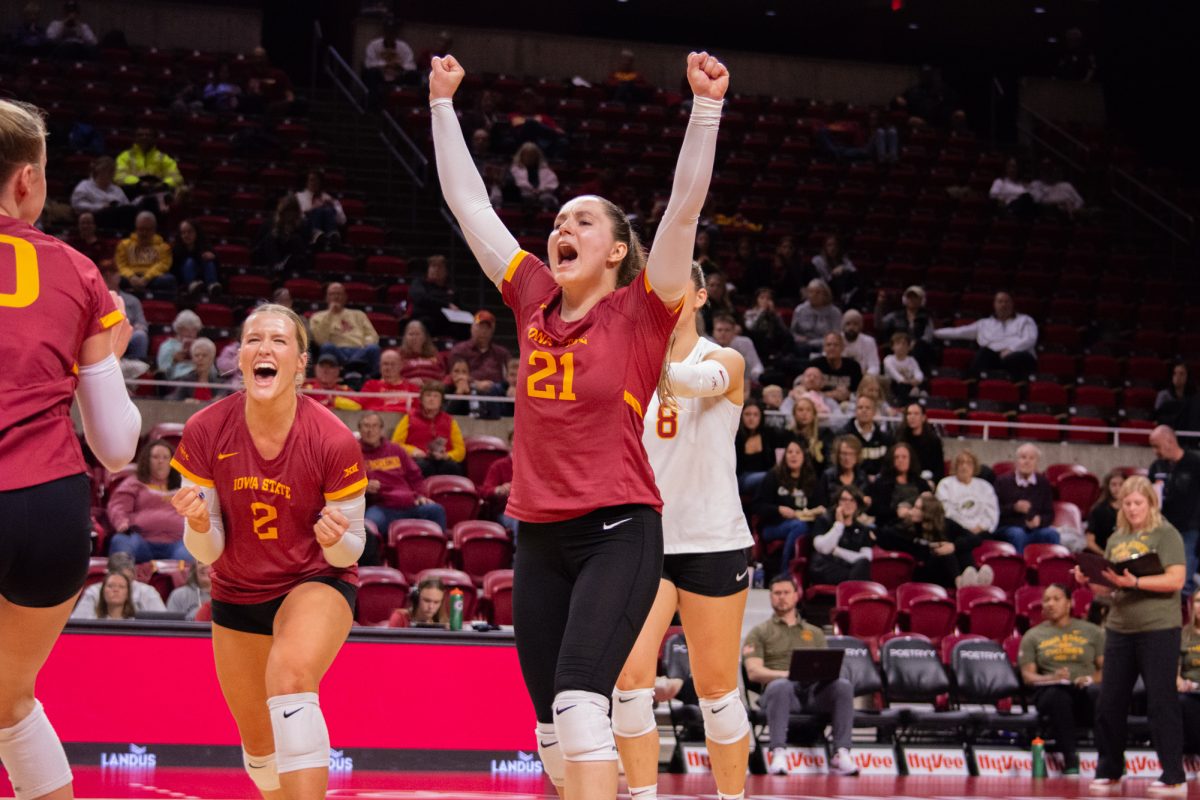Master gardener educates the public in horticulture
September 9, 2003
For those who have trouble admitting the gardening season is coming to a close, Story County Extension has an alternative solution to spring fever in September.
Those interested horticulture enthusiasts can earn the title of master gardener through classes and volunteer work.
The 16th year of the master gardener’s program will kick off Sept. 11, drawing in the crowd of die-hard plant lovers who aren’t ready to say goodbye to summer.
The Story County program is only offered once a year in a fall session lasting from Sept. 11 to Nov. 4 at a cost of $108, said Terrie Hoefer, program coordinator for Story County Extension. Classes will meet every Tuesday and Thursday evening from 6:30 p.m. to 9:30 p.m. in Nevada’s Story County Extension building.
“We cover a variety of topics, a different one for each three-hour class period,” Hoefer said. “Botany, fruit culture, houseplants, integrated pest management and herbaceous ornamentals are just a few of the topics. We even have a class period that covers animal ecology.”
The classes are only a small part of the master gardener’s responsibilities, Hoefer said. Once the classes have been completed, each participant is required to do 40 hours of volunteer work within the next year.
Some of the volunteer opportunities include speaking at symposiums relating to horticulture held for the public, working for the ISU Extension’s horticultural question hotline and volunteering at Reiman Gardens.
Those who become involved in the master gardener’s program often originate from very different backgrounds, said James Romer, state coordinator for the master gardener’s program and extension program specialist for horticulture.
“Participants really run the gamut of ages and careers,” Romer said. “We get doctors and lawyers, as well as people in their mid-teens through their 60s and 70s.
“It really doesn’t matter what their background is, as long as they have an interest in horticulture and are interested in providing a service to their community.”
Hoefer said because the program requires such an extensive time commitment, it tends to attract retirees and older people, but it is open to anyone with an interest. ISU students do occasionally participate.
“Students typically don’t have enough time to attend the classes,” Hoefer said. “But it is an excellent opportunity for students who are interested in gardening but aren’t necessarily majoring in horticulture.”
Hoefler said the idea for the master gardener’s program started in the state of Washington in the 1970s, when the flood of horticulturally-based questions became overwhelming for the extension service. The idea was conceived that a community could educate its people and then use them as volunteers to help answer questions over a hotline, she said.
The idea came to Iowa in 1977 as a pilot program in Davenport and gradually expanded to a statewide service provided by most counties, she added.
Rod Mulder, co-president of the Story County Master Gardener’s Association, went through the classes in 1993.
“The program gives its members a total awareness of all the information that’s out there,” Mulder said. “There’s so many different fields and aspects that are related to horticulture that it’s almost overwhelming.”
Mulder maintains his title as a master gardener each year by doing an additional six hours of volunteer work, as well as attending six hours of recertification classes.
Mulder and the other Story County Master Gardener’s Association co-president, his wife Kate, have worked to start the annual the Story County Master Gardener’s Association scholarship.
The Story County Master Gardener’s Association does fund raising throughout the year so they can give away two $1,000 scholarships to students who plan to earn a degree in horticulture.
“[The scholarships] are the most important things we’ve done,” Mulder said. “We feel that education is the key.”






